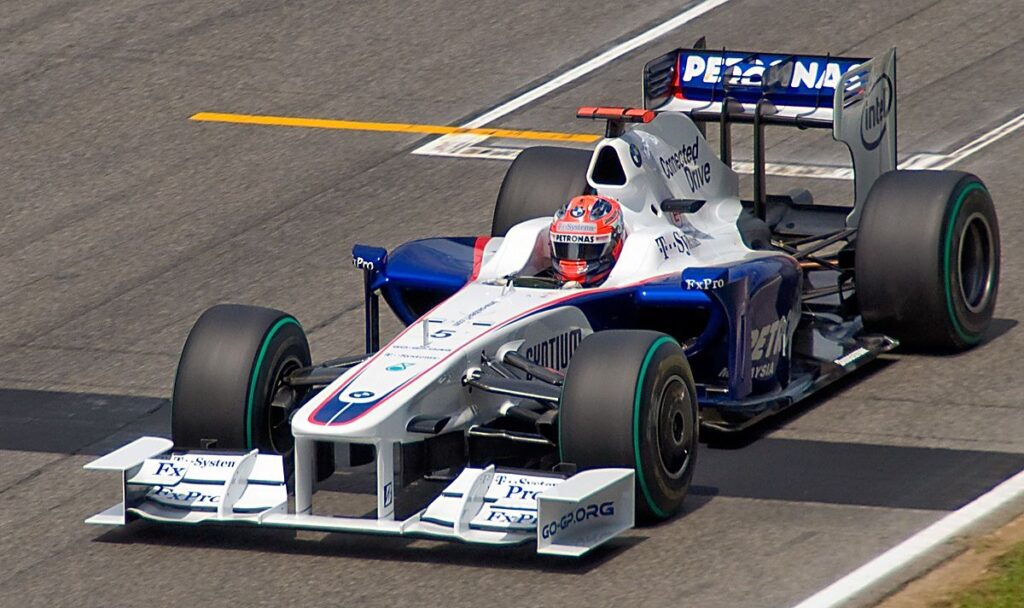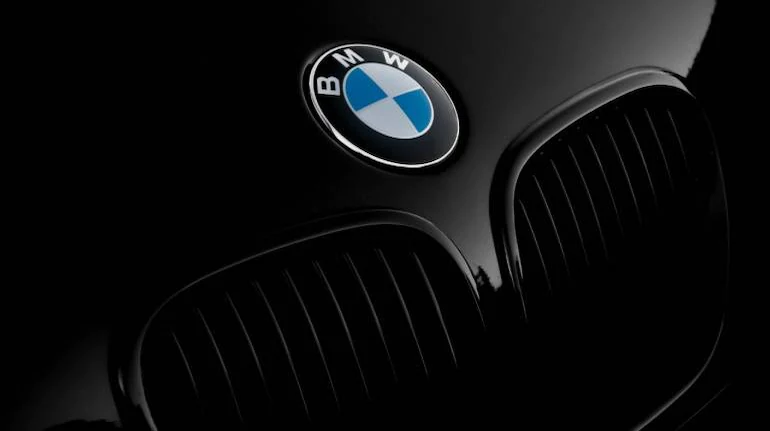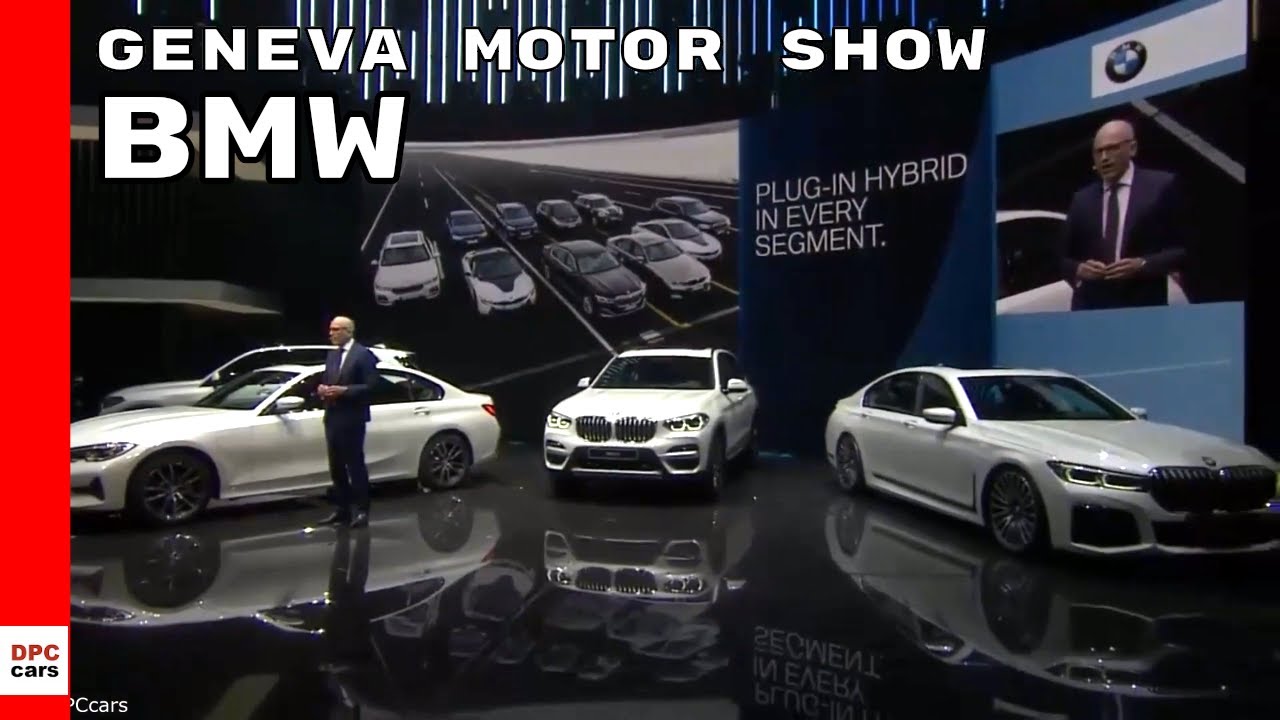BMW, or Bayerische Motoren Werke AG, is a German multinational manufacturer of luxury vehicles and motorcycles headquartered in Munich, Bavaria, Germany. The company was founded in 1916 as a manufacturer of aircraft engines, which it produced from 1917 to 1918 and again from 1933 to 1945. After World War II, BMW began producing motorcycles and automobiles. In this article, we’ll read about BMW’s Marketing Strategies and Success Factors.
BMW is known for its high-performance cars, motorcycles, and engines. The company’s cars are typically characterized by their sporty handling, luxury features, and elegant design. BMW motorcycles are also known for their performance and handling. BMW engines are used in a variety of vehicles, including cars, motorcycles, boats, and airplanes.
BMW is one of the world’s leading premium automotive brands. In 2022, the company sold over 2.2 million vehicles worldwide. BMW has a strong presence in Europe, North America, and Asia. The company also has a number of manufacturing facilities around the world.
BMW is a popular choice for luxury car buyers. The company’s cars are known for their combination of performance, luxury, and style. BMW also offers a variety of models to choose from, including sedans, coupes, SUVs, and convertibles.
If you are looking for a high-performance luxury vehicle, BMW is a great option. The company’s cars are sure to turn heads and provide you with a driving experience that you will never forget.
What makes BMW so successful? – Success Factors of BMW
BMW’s remarkable success in the automotive industry can be attributed to a combination of factors that have consistently set the brand apart. From its unwavering commitment to engineering excellence to its strong brand identity and customer-centric approach, BMW has established a unique formula for success. Here’s a detailed breakdown of the key success factors for BMW:
Product quality and engineering excellence: One of the most critical success factors for BMW has been its commitment to product quality and engineering excellence. The company invests heavily in research and development to ensure that its vehicles meet the highest standards of reliability, durability, and performance. This approach has helped BMW maintain a reputation for manufacturing some of the finest automobiles available today.
Customer satisfaction and loyalty: Another important factor contributing to BMW’s success is its focus on customer satisfaction and loyalty. The company places great importance on understanding and meeting the needs and expectations of its customers through surveys, feedback mechanisms, and other means. By prioritizing customer satisfaction and working closely with dealerships to address any issues that arise, BMW has built a dedicated following of repeat customers who trust the brand and remain loyal over time.
Brand identity and positioning: A third crucial success factor for BMW is its strong brand identity and positioning. The company has developed a distinct image characterized by elegance, refinement, and sportiness. Through effective advertising and marketing campaigns, BMW has established itself as a premier luxury automotive brand that appeals to discerning drivers seeking a unique blend of style, performance, and comfort.
Global presence and distribution network: BMW has also achieved success by expanding its global footprint and establishing a comprehensive distribution network. With operations spanning multiple continents and sales outlets located in major cities worldwide, BMW ensures easy accessibility for customers interested in exploring its range of vehicles. Additionally, the company continues to invest in new markets and regions to further strengthen its international reach.
Innovation and technology leadership: Finally, BMW remains committed to innovation and technology leadership. From pioneering developments in engine design and fuel efficiency to advancing driver assistance systems and electric mobility solutions, BMW continuously pushes the boundaries of automotive technology. By staying ahead of the curve and incorporating cutting-edge features into its products, BMW not only attracts tech-savvy consumers but also positions itself as an industry leader in shaping the future of transportation.
Overall, BMW’s success hinges on several interrelated factors, all of which work together to drive business growth and enhance customer satisfaction. While there may be variations in the relative importance of these elements across different contexts, they collectively contribute significantly to BMW’s long-term viability and prosperity
Marketing Strategies of BMW
Bayerische Motoren Werke AG (BMW) has established itself as a premier luxury automotive brand with a global reputation for precision engineering, performance, and prestige. Its marketing strategies are a key factor in maintaining and enhancing this reputation. Here’s a detailed overview of BMW’s marketing strategies:
Premium Brand Positioning
Premium brand positioning is a strategy used by companies such as BMW to differentiate themselves from competitors and attract specific target audiences. This approach involves creating an image of exclusivity, luxury, and prestige around the brand through various channels like advertising campaigns, celebrity endorsements, and strategic partnerships. The goal is to establish a strong emotional connection with customers and foster long-term customer loyalty.
BMW uses this strategy effectively by leveraging its rich history, cutting-edge technology, and innovative designs to create a unique identity that resonates with discerning buyers worldwide. From sleek sports cars to powerful SUVs, BMW caters to a broad range of automotive enthusiasts who appreciate top-notch performance and refined elegance.
In essence, premium brand positioning helps BMW maintain its status as a leader in the luxury car industry by emphasizing superior craftsmanship, advanced engineering, and exceptional customer experiences. As a result, BMW remains a preferred choice among drivers who seek excellence on the road.
Emotional Branding
BMW has been known for using emotional branding effectively in their marketing campaigns. For example, one of their most successful ad campaigns was “The Ultimate Driving Machine,” which focused on evoking feelings of excitement, passion, and desire for driving pleasure. By positioning themselves not only as a car manufacturer but also as a provider of experiences and lifestyle choices, they were able to connect with their target audience at a deeper level.
Another example of BMW’s use of emotional branding can be seen in their sponsorship of major sporting events such as Formula 1 racing. Through this partnership, BMW associates itself with speed, precision, and cutting-edge technology – all attributes that align well with their brand identity. This helps to reinforce the idea that owning a BMW is not just about having a reliable mode of transportation but also about experiencing the thrill of high performance driving.

Overall, BMW uses emotional branding strategically by leveraging powerful imagery, storytelling, and experiential elements to create lasting impressions and foster meaningful relationships with their customers.
Product Portfolio Differentiation
Product portfolio differentiation is a marketing strategy used by companies like BMW to differentiate their products from those of competitors. Essentially, it involves offering unique combinations of features, benefits, and price points across multiple product lines to appeal to diverse customer segments.
One key aspect of BMW’s product portfolio differentiation strategy is their focus on premium quality and innovative design. They offer a range of vehicles including sedans, SUVs, coupes, and convertibles, each with distinctive styling and advanced technological features. Their cars often feature state-of-the-art engines, suspension systems, and driver assistance technologies that set them apart from other brands.
In addition, BMW offers customization options for many of their models, allowing customers to personalize their vehicle according to their preferences. This includes everything from interior trim colors and materials to exterior paint finishes and wheel designs. These options allow BMW owners to make their vehicles truly unique and reflect their individuality.
Another important factor in BMW’s product portfolio differentiation strategy is their pricing strategy. While some of their entry-level models may compete directly against similar luxury cars from Mercedes-Benz and Audi, their higher end models command significantly higher prices due to their exclusivity and limited availability. This allows BMW to maintain a premium image while still appealing to a broader range of buyers.
Overall, BMW’s product portfolio differentiation strategy enables them to cater to a wide variety of consumer needs and preferences while maintaining a consistent reputation for quality, innovation, and prestige.
Iconic Design and Aesthetics
Iconic design and aesthetics play a crucial role in BMW’s overall marketing strategy. By focusing on creating visually striking and memorable designs, BMW sets itself apart from competitors and builds a loyal following among automobile enthusiasts worldwide.
One of the hallmarks of BMW’s iconic design language is its commitment to clean, modernist forms and minimal ornamentation. From the sleek silhouette of the Z4 roadster to the bold grille and headlight treatment of the X5 SUV, every BMW model exudes confidence and refinement. Even details like the stitch pattern on the seats and the shape of the air vents contribute to the overall sense of elegance and sophistication.
This dedication to form and function extends beyond mere appearances, however. BMW’s attention to detail is evident in the tactile experience of sitting behind the steering wheel or operating the controls. Every surface feels solid and substantial, yet effortlessly responsive to touch. And the sound of the engine roaring to life or shifting gears remains unmistakably BMW, thanks to careful acoustic engineering.
Of course, no discussion of BMW’s iconic design would be complete without mentioning the famous blue and white propeller logo. Simple yet instantly recognizable, it has become synonymous with excellence and performance around the globe. Whether emblazoned on the hood of a M3 racer or displayed discreetly on the key fob of a 7 Series sedan, the propeller symbolizes the promise of pure driving enjoyment that lies within.
Ultimately, BMW’s commitment to iconic design and aesthetics serves both functional and emotional purposes. On the one hand, it ensures that every BMW delivers the highest levels of comfort, convenience, and safety expected of a premium automobile. At the same time, though, it creates a sense of pride and belonging among owners who appreciate the beauty and heritage of these extraordinary machines. As such, BMW’s iconic design continues to inspire new generations of drivers and enthusiasts alike.
Innovative Technology Showcase
One of BMW’s core strengths is its ability to develop and integrate innovative technology into its vehicles. The company regularly showcases its latest advancements through various channels, including auto shows, media events, and even virtual reality experiences.
For example, at major auto shows like Geneva Motor Show or Los Angeles Auto Show, BMW typically displays concept cars or prototypes featuring futuristic designs and groundbreaking tech. These concepts serve as proof of BMW’s technical capabilities and willingness to push boundaries in terms of what an automobile can do.
Moreover, BMW frequently collaborates with external partners like Microsoft or Amazon to bring cutting-edge connectivity solutions to its vehicles. For instance, BMW Connected Drive integrates smartphone apps, voice commands, and real-time traffic updates seamlessly into the car’s infotainment system. Meanwhile, BMW i Ventures invests in startups working on next-generation mobility services like ride sharing or autonomous driving.
Additionally, BMW actively promotes its sustainability efforts via initiatives like BMW Group Future Experience. Visitors can explore interactive exhibits highlighting topics like electric powertrains, lightweight construction, and recycling methods. This approach emphasizes BMW’s commitment to reducing environmental impact while enhancing performance and user experience.
Finally, BMW employs immersive VR experiences like “The Ultimate Virtual Test Drive” to let users virtually test drive upcoming models before they hit dealership floors. Participants don VR goggles and sit in a mock cockpit equipped with motion sensors and haptic feedback devices. This engaging format effectively communicates BMW’s passion for innovation while generating buzz and excitement among potential customers.
In summary, BMW leverages innovative technology showcasing as a marketing strategy to demonstrate its leadership in developing advanced automotive solutions. Through creative approaches like concept cars, partner collaborations, sustainability campaigns, and VR experiences, BMW presents a compelling vision of the future of personal transportation that resonates with consumers worldwide.
Lifestyle Marketing
BMW associates its brand with aspirational lifestyles through partnerships with luxury brands, fashion events, art exhibitions, and sports sponsorships.
To achieve this goal, BMW employs a range of tactics designed to connect with its target audience on an emotional level. One way the company does this is by hosting exclusive events and experiences that bring together like-minded individuals who appreciate fine automobiles and premium living. Examples include invitation-only test drives, VIP weekends at racetracks, and private concerts featuring world-renowned artists.
Another important aspect of BMW’s lifestyle marketing strategy is its use of carefully curated content across digital and traditional media channels. This includes everything from glossy print ads in high-end magazines to sleek videos posted on social media platforms like Instagram and Vimeo. Each piece of content is crafted to capture the essence of the BMW brand and convey its unique value proposition to prospective buyers.
Of course, no discussion of BMW’s lifestyle marketing would be complete without mentioning its longstanding relationship with professional athletes and other celebrities. Over the years, the company has worked with countless stars from the worlds of motorsport, Formula 1 racing, golf, tennis, and more. By associating itself with these elite performers, BMW underscores its commitment to excellence and innovation in all areas of life – not just on the track or court.
Ultimately, BMW’s lifestyle marketing strategy seeks to create a compelling narrative around its products and the larger community of drivers who cherish them. Whether through immersive experiences, evocative storytelling, or powerful associations with icons of achievement, the company strives to make clear that owning a BMW isn’t simply about transportation; it represents entry into a distinct club of discerning individuals united by their passion for quality and refinement. And because this ethos resonates so strongly with consumers today, BMW’s lifestyle marketing approach continues to pay dividends for the brand.
This approach allows BMW to align itself with the interests and aspirations of its target audience, creating a deeper connection.
Event Marketing and Experiences
Event marketing and experiential campaigns are essential components of BMW’s marketing efforts. The objective behind such initiatives is to create immersive experiences that engage customers emotionally and intellectually while highlighting the performance capabilities of BMW vehicles. These campaigns typically focus on delivering exceptional customer service and creating memories that encourage participants to return to future events and share their positive experiences with others.
One key element of BMW’s event marketing and experiential campaigns involves partnering with luxury brands and influencers to create exclusive opportunities for customers to experience the best of what both companies have to offer. For instance, BMW might team up with a high-end watchmaker to organize a driving tour along scenic routes where guests can stop at picturesque locations to admire the views while enjoying gourmet meals prepared by celebrity chefs. Such collaborations enable BMW to tap into the cachet of well-known luxury brands and establish strong connections between its own reputation for prestige and exclusivity.
In addition to collaborations with luxury brands, BMW regularly hosts events centered around motorsports and car culture. These activities emphasize the thrill of speed and precision driving while demonstrating the superior handling characteristics of BMW vehicles. Customers can participate in closed-course autocross challenges or attend drifting competitions featuring skilled professionals piloting BMW cars equipped with advanced safety features.
Experiential campaigns also extend online via virtual and augmented reality technologies. Interactive simulations give users the chance to explore different aspects of BMW ownership, including configuring their dream vehicle using state-of-the-art tools and visualizing themselves behind the wheel during exhilarating driving scenarios.
Virtual tours of BMW factories and facilities allow visitors to witness firsthand the meticulous craftsmanship involved in producing each BMW automobile. By offering these digital insights, BMW creates emotional connections with customers who appreciate the attention to detail evident throughout every stage of production.
In conclusion, BMW’s marketing strategies are a blend of emotional storytelling, product differentiation, technological innovation, and lifestyle association. By focusing on creating a strong emotional connection, showcasing cutting-edge technology, and curating a distinct luxury experience, BMW continues to maintain its position as a leader in the luxury automotive market.
Also Read: Mastering the Road: The Iconic Journey of BMW
To read more content like this, subscribe to our newsletter






